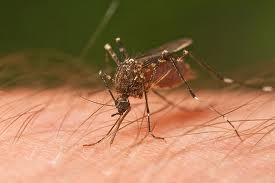The wayforward in attaining MDG targets on malaria
 Ghana joins the international community to commemorate World Malaria Day, which falls tomorrow, Thursday, April 25. It is a period for the country to pause and access the gains made so far and the task that remains in the fight against malaria.
Ghana joins the international community to commemorate World Malaria Day, which falls tomorrow, Thursday, April 25. It is a period for the country to pause and access the gains made so far and the task that remains in the fight against malaria.
Advertisement
In observing the global event, the Manager of the National Malaria Control Programme (NMCP), Dr Constance Bart-Plange, is convinced that Ghana has made a giant leap in the fight against malaria.
Her reasons: Until recently, Ghana was classified as hyper-endemic with regard to malaria transmission.
“I can recollect the countless number of children who used to die from malaria virtually on a daily basis and those who convulse now and then as a result of lack of prompt and effective treatment,” said Dr Bart-Plange.
Currently, statistics indicate that malaria deaths have shown a massive drop from more than 10,000 in 2002 to 2,800 in 2012, the programme manager stated.
In less than 600 days, the timelines for achieving the Millennium Development Goals (MDGs) will end and Ghana, like many other countries, will have to give an account of the gains made in achieveing the goals.
Making gains in the fight against malaria is an integral part of the process to achieve the MDGs and Ghana is required to report on whether it has been able to achieve the MDG target of zero malaria deaths, 100 per cent of households owning at least one insecticide-treated net and 80 per cent of children under five years sleeping in a treated net.
She said Ghana may still be counting significant out-patient cases of malaria and unfortunate deaths due to malaria but the reality was that tens of thousands of lives have been saved through proven interventions which are currently available.
According to the Ghana Demographic and Health Survey of 2003, ownership of insecticide-treated bed nets is in the neighbourhood of three per cent.
With support of health development partners, Ghana has successfully distributed over 12 million long-lasting insecticidal nets (LLINS) to households as part of efforts to achieve universal coverage of LLINS. These nets were not only distributed from door to door, but were hang as much as possible over recipients’ sleeping places. Difficult as it was, it is an exercise that has made Ghana the first country south of the Sahara to achieve this feat.
Today, as we commemorate World Malaria Day, ITN coverage in Ghana is well over 60 per cent; a whopping 57 plus percentage point increase, which is great achievement in public health practice.
Pregnant women, one of the most vulnerable groups, have access to intermittent preventive treatment free of charge and have been enjoying this intervention for a close to a decade now.
While these preventive and curative interventions have been widely made available to Ghanaians across the country, there has been a correspondingly intense education of the population through various communication channels to demand of the people to play their respective roles in order to make the fight against malaria winnable.
Dr Bart-Plange emphasised that “we may not achieve the MDG 2015 target, but we will be close”.
She pointed out that the MDG target for treated bed nets was 100 per cent ownership by households. Currently, ownership of nets is 96.6 per cent.
The target for children sleeping in treated nets is also 80 per cent and Ghana has presently achieved 70 per cent.
She noted, however, that the country would have to intensify its efforts to achieve the other indicators and that was why she thought the theme for this year’s World Malaria Day, which is ‘Invest in the future, defeat malaria’, was appropriate.
While appreciating the generosity of Ghana’s health development partners for the enormous resources that had been invested in malaria to make the significant gains a reality, she acknowledged that the commemoration of the World Malaria Day offered an opportunity for the NMCP to reappraise its efforts to ensure that the proven interventions would make a significant impact.
This would require resources hence the need to invest more in the future. When this is done, not only will the investment already made to date not go to waste, but it will also add value to all the investment that has been made in the fight against malaria.
A key feature of the commemoration ceremony to be held at the Adentan Community Schools Park will be the launch of a new LLIN initiative; a behaviour change campaign dubbed ‘Care and use to promote continuous use of bed nets’.
Article: Rosemary Ardayfio




